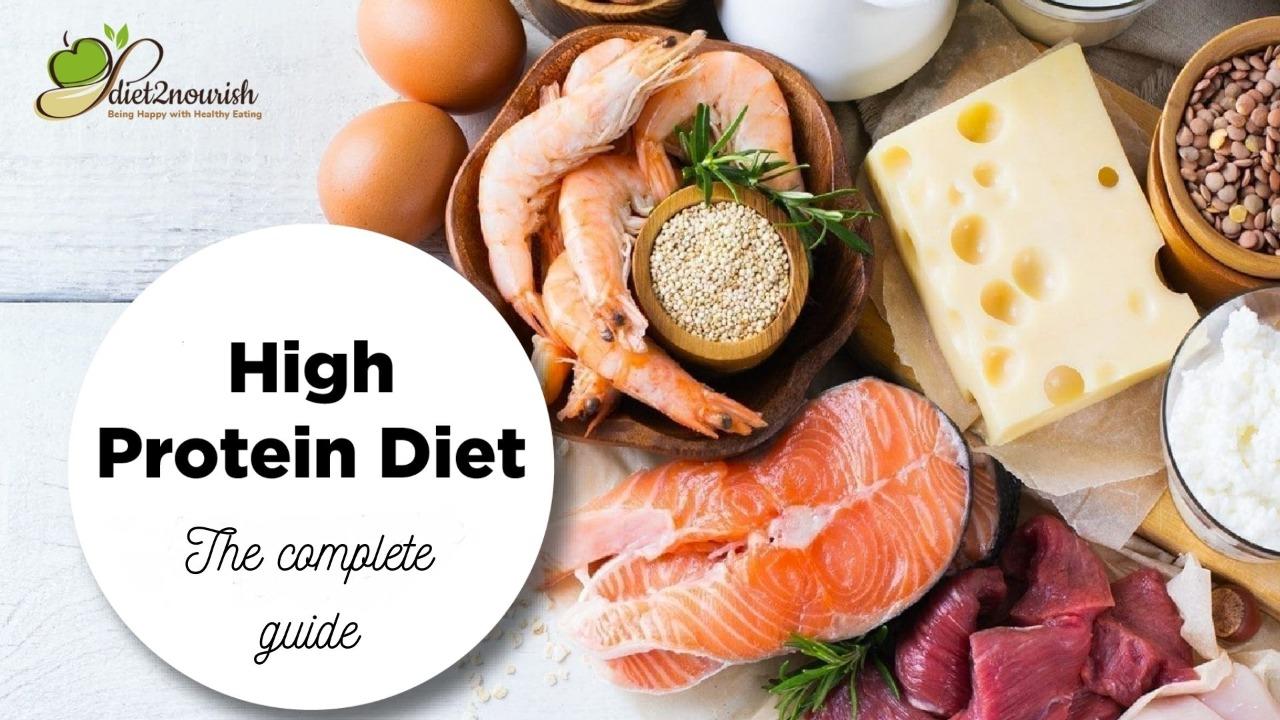A high protein diet is one that emphasizes the intake of protein-rich foods while limiting carbohydrates and fats. The idea behind a high protein diet is that increasing the intake of protein can help with weight loss, muscle building, and other health benefits. Here are some things to consider when following a high protein diet:
- Benefits of a high protein diet: One of the main benefits of a high protein diet is weight loss. Protein is more satiating than carbohydrates and fats, meaning it can help you feel fuller for longer and reduce overall calorie intake. Additionally, protein is essential for building and repairing muscle tissue, which can be beneficial for athletes and individuals looking to increase their muscle mass. Protein has also been shown to help regulate blood sugar levels and reduce the risk of chronic diseases such as diabetes and heart disease.
- Protein sources: When following a high protein diet, it's important to choose high-quality protein sources. These include lean meats such as chicken, turkey, and fish, as well as plant-based sources such as legumes, nuts, and seeds. It's also important to choose sources that are low in saturated fat and cholesterol.
- Daily protein intake: The recommended daily intake of protein varies based on age, gender, and activity level. However, for most adults, a daily intake of 0.8 grams of protein per kilogram of body weight is recommended. For individuals following a high protein diet, this may increase to 1-1.5 grams per kilogram of body weight.
- Balance with other nutrients: While protein is important, it's essential to also balance your intake with other nutrients such as carbohydrates and fats. Carbohydrates provide energy for the body, while fats help with hormone regulation and brain function. When following a high protein diet, it's important to choose healthy sources of carbohydrates and fats such as whole grains, fruits, vegetables, and healthy fats from sources such as avocados and nuts.
- Potential risks: While a high protein diet can be beneficial for some individuals, it may not be appropriate for everyone. Individuals with kidney disease or other renal issues should be cautious with their protein intake, as excess protein can put a strain on the kidneys. Additionally, consuming high amounts of animal protein can increase the risk of heart disease, particularly if it is accompanied by high levels of saturated fat and cholesterol.
Here is an example of a high protein diet plan:
Breakfast:
- Greek yogurt with berries and almonds
- Whole wheat toast with avocado
Snack:
- Hard boiled eggs
Lunch:
- Grilled chicken breast with mixed vegetables
- Quinoa salad with chickpeas and feta cheese
Snack:
- Hummus with carrots and celery sticks
Dinner:
- Baked salmon with roasted sweet potato and asparagus
- Spinach salad with sliced almonds and strawberries
Before bedtime:
- Protein shake with almond milk and banana
In conclusion, a high protein diet can be beneficial for weight loss, muscle building, and other health benefits. It's important to choose high-quality protein sources and balance your intake with other nutrients. As with any diet, it's important to consult with a healthcare provider or registered dietician to ensure it is appropriate for your individual needs and health status.
